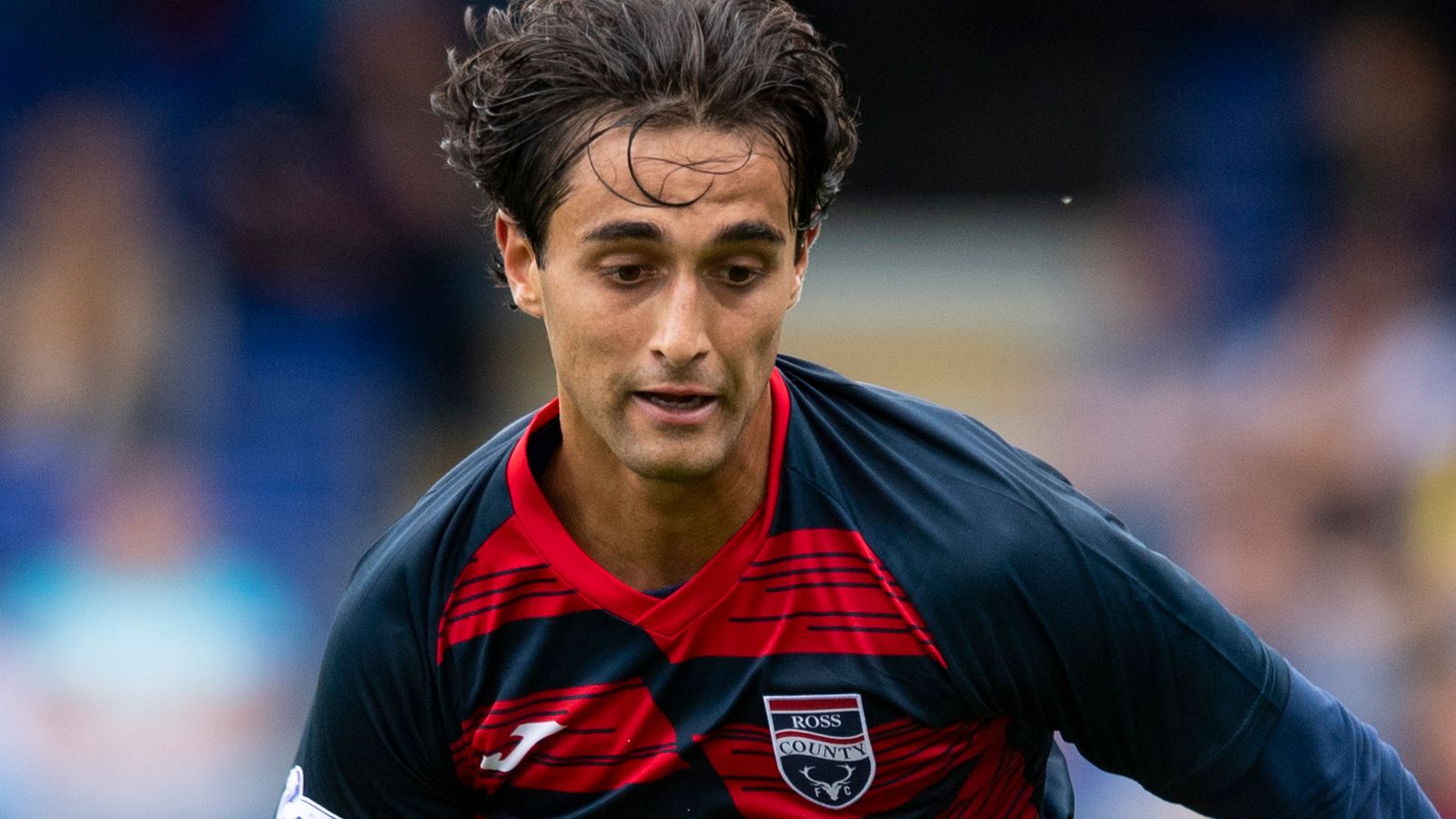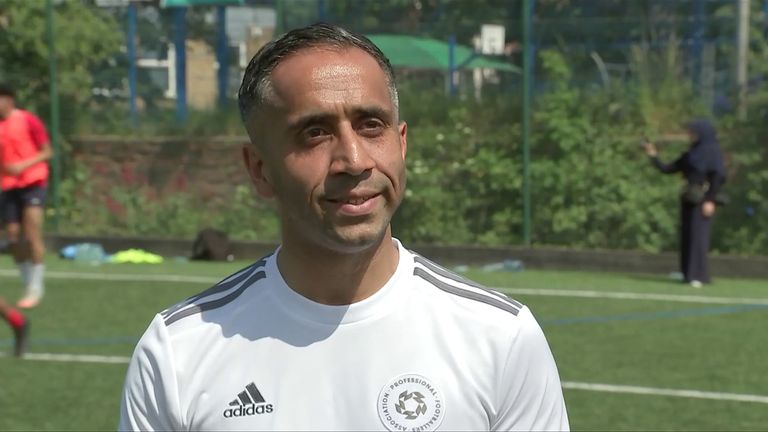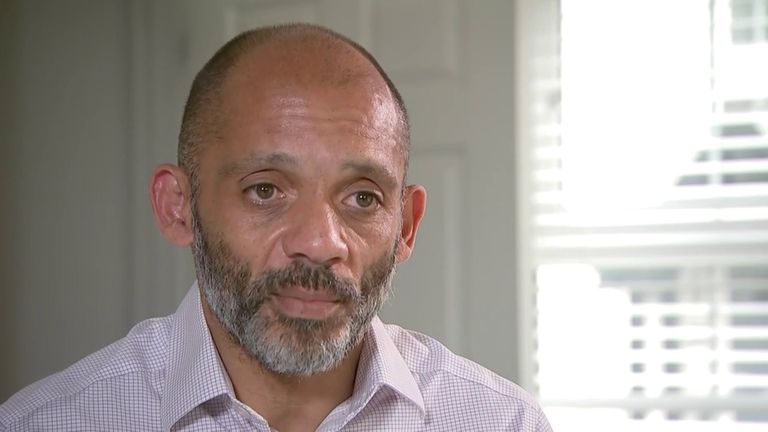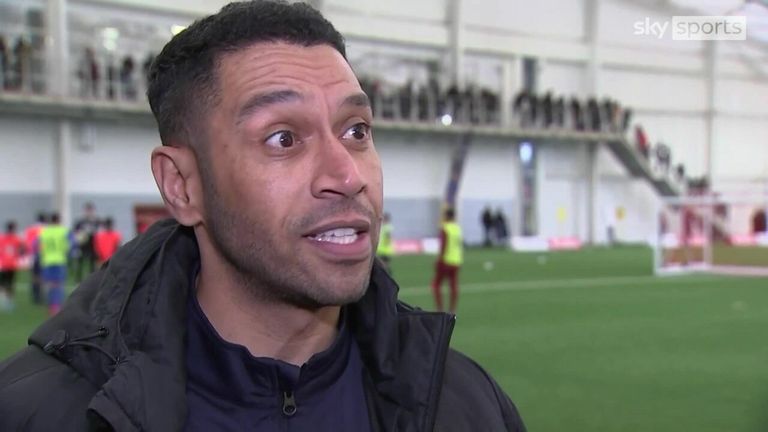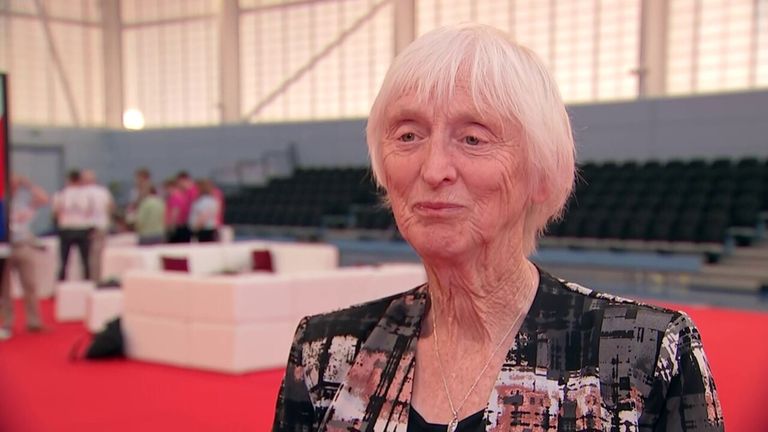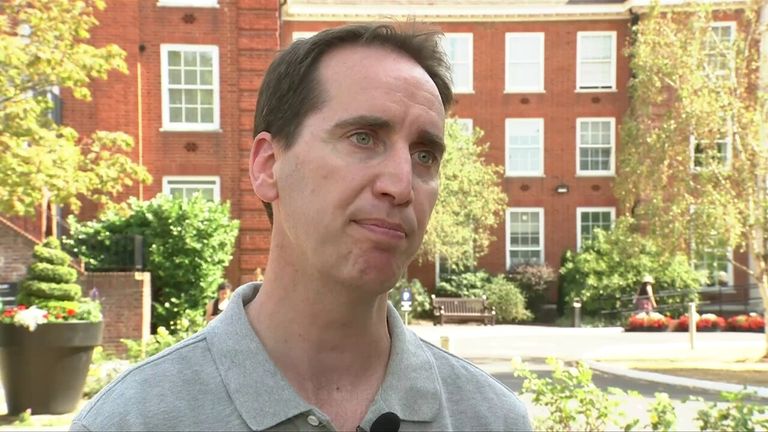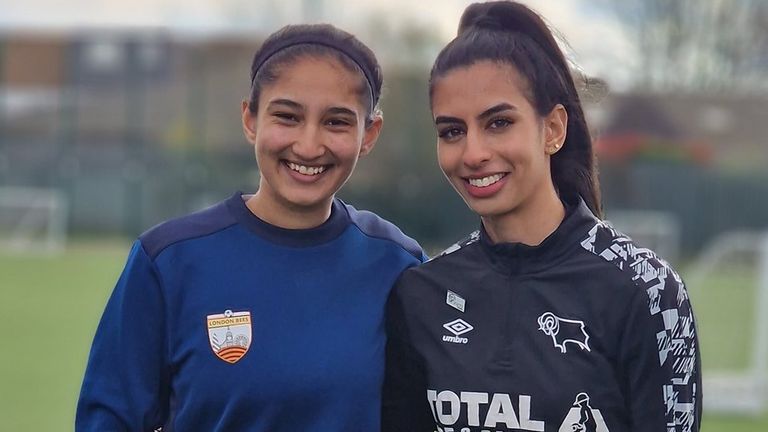Yan Dhanda says he is proud of the explosion in interest in British South Asians in Football after he took a stand following comments made by former FA chair Greg Clarke in 2020.
Clarke resigned as FA chair after making a series of remarks before a Digital, Culture, Media and Sport committee, which included saying “if you go the IT department at the FA, there’s a lot more Asians than there are Afro-Caribbeans. They have different career interests”. Clarke, who apologised and accepted his remarks were “unacceptable”, also stepped down from his roles with UEFA and FIFA.
South Asian-led supporters’ groups affiliated to the Fans for Diversity campaign expressed their dismay at the comments for reinforcing lazy stereotypes, and in an emotional interview with Sky Sports News, Dhanda – whose father Jas hails from the northern India state of Punjab – said Clarke’s remarks pointed to how the game was going backwards rather than forwards in the fight for equality for ethnically diverse communities across football.
Since that interview with Ross County summer signing Dhanda, Sky Sports has created a first-of-its-kind British South Asians in Football index page, which has educated and brought untold stories to the mainstream media, changing the landscape for the community by identifying a new generation of role models in the game.
Former Liverpool and West Brom youngster Dhanda told Sky Sports News: “I’m super proud [of my personal contribution]. That was my main objective, to make people stand up and speak up about it.
“For the amount of support [South] Asian players are getting now and for me seeing so many more players coming through the youth ranks, it makes me happy.
“And for the likes of me [and senior professionals like] Mal Benning, and Danny Batth to keep showing that anything is possible no matter where you come from is amazing.
“The work Sky Sports is doing is really good as well, and really postive, and hopefully it can continue into the future. Hopefully, we see many more young Asian players coming through and showing they can make a living out of football.”
British South Asians are the largest single ethnic minority group in the country yet the community has been massively under-represented in the professional game for decades, with Kick It Out chair Sanjay Bhandari describing it to Sky Sports News back in December 2020 as “the single biggest statistical anomaly in English football”.
Not enough work being done
Last year, the PFA’s Riz Rehman took aim at the lack of activity across the game by saying: “I think there is too much talking, and I’ve said it publicly, there is a lot of talking. We want action, we want work.”
Kick It Out chair Tony Burnett has since said that the South Asian voice is essential in the game, adding: “we need to work harder, we need to work faster.”
Speaking during South Asian Heritage Month last year, England manager Gareth Southgate acknowledged the unconscious bias that players from South Asian backgrounds have historically been affected by, emphasising the importance of widening the net when it comes to talent identification.
“In a lot of communities now, football is being played, in all sorts of variety of areas,” Southgate said.
“I think [in terms of] scouting the South Asian community, we’ve got to be creative in getting into the places where some of these kids might be playing, and encouraging them into broader leagues where they can be assessed more easily against other players, and then making that step into the academy system.”
Ahead of the Women’s Euros, FA director of women’s football Baroness Sue Campbell told Sky Sports News she thinks meaningful change for diverse communities at the elite end of the women’s game could take years, admitting the current system of talent Identification and recruitment excludes a lot of people.
The FA has since confirmed the allocation of the first 60 Girls’ Emerging Talent Centre licences, which will see the number of young female players engaged in FA programmes across the country rise from 1,722 to over 4,200 by the end of the 2023-24 season.
“Our key aims are to provide greater access for more players whilst diversifying the talent pool,” added the FA’s head of Women’s technical, Kay Cossington.
Latest PFA figures indicate just 9.7 per cent of players in the Women’s Super League are from a diverse ethnic background. The England squad that has just won the Women’s Euros had three ethnically diverse players, although none of them started a game during the tournament.
Sky Sports recognised and began taking steps to address the lack of diversity in the women’s game back in 2020 as part of its £30m commitment to tackle systemic racism and make a difference in communities across the UK.
Sky Sports has worked with dozens of current and former players from diverse ethnic backgrounds, and has tried to give them a platform to share their stories to try and capture the imagination to inspire the next generation of female footballers.
Role models have been identified and highlighted, with talent signposted directly to the FA and clubs as part of Sky Sports’ unprecedented commitment to British South Asians in Football, which has also seen us expand our digital offering by creating a dedicated rolling blog page.
A number of elite and elite-potential female players and their families have also been supported with mentoring and access to off-field developmental opportunities.
Earlier this year, Sky Sports also partnered with the country’s largest sports race equality charity, Sporting Equals, which has seen us support participation across the country, including devising the ‘Seeing Is Believing’ event for century-old west London sports club Gymkhana.
British South Asians in Football
For more stories, features and videos, visit our groundbreaking South Asians in Football page on skysports.com and South Asians in the Game blog and stay tuned to Sky Sports News and our Sky Sports digital platforms.

